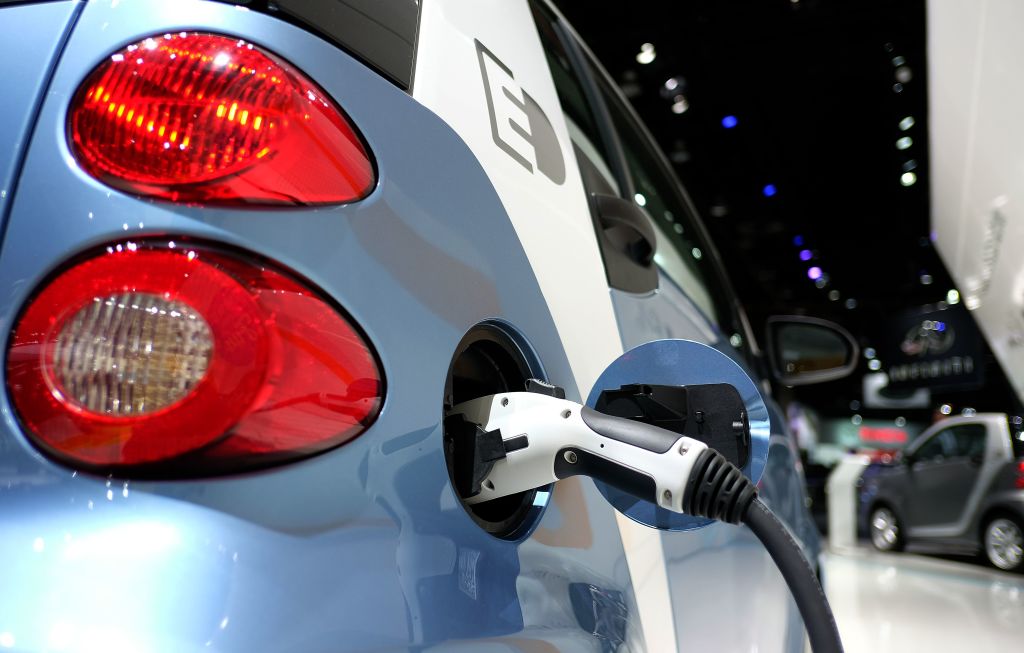Climate alarmists’ misguided fantasy of an electric vehicle-dominated world has morphed into a nightmare amid historic inflation and crippling supply-chain bottlenecks.
In the latest blow, EV maker Lucid Group slashed its production outlook by 50 percent, citing supply-chain disruptions and “logistical challenges,” The Wall Street Journal reported on Thursday.
Other factors contributing to the expected shortfall are increased competition in the EV market and skyrocketing prices of raw materials amid the runaway inflation that has become the hallmark of Joe Biden’s failed presidency.
This is the second time in the past eight months the California automaker has cut its production projections. Lucid now expects to make just 6,000 to 7,000 cars this year.
In February, the electric vehicle company had cut its outlook from 20,000 vehicles to 12,000.
“This quarter has proven to be a very challenging period, and whilst we have experienced supply chain and logistics challenges along with the entire industry, the limitations of our logistics systems have compounded the challenge,” CEO Peter Rawlinson told the Wall Street Journal.
As a result, Lucid will “increase the price of its sole vehicle, the Air sedan, to $87,000, citing rising raw material costs.”
The purported logic of paying $87,000 for a car to “save money on gas” is baffling, and it might hasten the industry’s downfall.
The challenge for EV makers is making a profit, as many of them operate at a loss for years — even with hefty, taxpayer-funded federal subsidies.
For example, Tesla — the biggest and most prominent EV company — recorded its first profitable year in 2021 even though it launched in 2003.
Meanwhile, for the second quarter ended in June, Lucid lost $220 million, slightly better than the $261 million it lost in the year-ago period.
Another California electric-car maker, Fisker Inc., lost $106 million in the second quarter — more than double the $46 million it lost the previous year. The 6-year-old company reported second-quarter revenue of just $10,000 — down from $27,000 a year earlier.
Just last week, still another California EV company, Rivian Automotive, laid off 6 percent of its 14,000 employees, citing record inflation.
“Over the last six months, the world has dramatically changed with inflation reaching record highs, interest rates rapidly rising and commodity prices continuing to climb — all of which have contributed to the global capital markets tightening,” Rivian CEO R.J. Scaringe wrote in a company email announcing the firings.
With all these challenges roiling the industry, it makes no sense for Biden and the Democratic Party to continue to rabidly push electric vehicles as the solution to high gas prices.
If you like electric cars, get one — but they shouldn’t be forced on the American public as part of an insidious, calculated plan to destroy the oil industry in the name of climate alarmism.
Transitioning 332 million Americans from fossil fuels to so-called green energy will be expensive, inconvenient and painful — and it isn’t even guaranteed to combat “climate change.”
As it is, climate change is not a top priority for the vast majority of Americans, but this is what Biden is focusing on because he has had no success in quelling the numerous real crises ravaging the nation.
According to a recent New York Times/Siena College poll, only 1 percent of voters named climate change as the most important issue facing the country, far behind worries about inflation and the economy.
NEW – Just 1% of Americans named “climate change” as the most important problem facing the US in a recent NYT poll.
Biden to announce new actions on “climate change” later today.pic.twitter.com/nXLXLlOEmL
— Disclose.tv (@disclosetv) July 20, 2022
Biden’s destructive climate agenda is merely a way to pander to the far-left faction of his flailing party and divert attention away from his failed presidency.
This article appeared originally on The Western Journal.

























 Continue with Google
Continue with Google